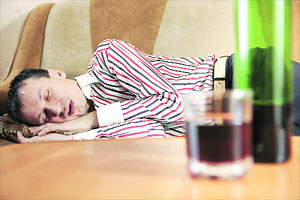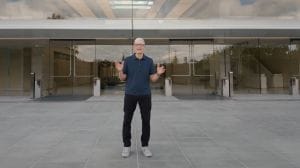After a night of drinking and carousing, you often wake up with a hangover — pounding headache, exhausted and sick. You may feel depressed, anxious, irritable and sensitive to light or even experience muscle and joint pain. But, just a few tips that can prevent these symptoms.
Usually, a hangover starts within several hours after the last drink, when blood alcohol level is dropping. Symptoms normally peak about the time alcohol level reaches zero and may continue for an entire day.
Alcohol may cause:
* Dehydration, leading to headache, dry mouth and electrolyte imbalance.
* Irritation of the stomach and intestines, contributing to stomach pain, nausea and vomiting.
* Fall in blood sugar levels.
* Disturbed sleep patterns and biological rhythms.
* Irregular heart-beats.
Research shows that gin and vodka, beverages that contain less of the biologically active compounds cause fewer headaches. Contrary to popular opinion, a combination of different alcoholic beverages is unlikely to cause hangover unless you have consumed too much.
So what can you do about your hangover?
1. Drink plenty of water before going to bed. Fresh lime water, juices, coconut water, sodas can be beneficial.
2. Taking vitamin B6 or an extract from Opuntia ficus indica (a prickly pear cactus) before drinking may reduce the severity of hangover.
3. Eating bland foods that contain complex carbohydrates, such as toast and crackers, can combat low blood sugar and possibly nausea. Do not drink on an empty stomach.
4. Adequate rest can ease fatigue.
5. Drinking non-alcoholic, non-caffeinated beverages can alleviate depression. Contrary to popular belief caffeine can worsen symptom as it increases urine production.
6. Time is the most effective treatment; symptoms usually disappear in 8 — 24 hours.
7. Medicines may relieve some symptoms. Antacids, for example, may relieve nausea and stomach pains. Mild painkillers may reduce headache and muscle aches, though they may cause stomach irritation.
Use of medicines like pain killers and non-steroidal anti-inflammatory drugs can be dangerous particularly for heavy drinkers as it can increase the risk of liver damage and stomach bleeds. Therefore, alcohol should thus be taken in limited amounts.








